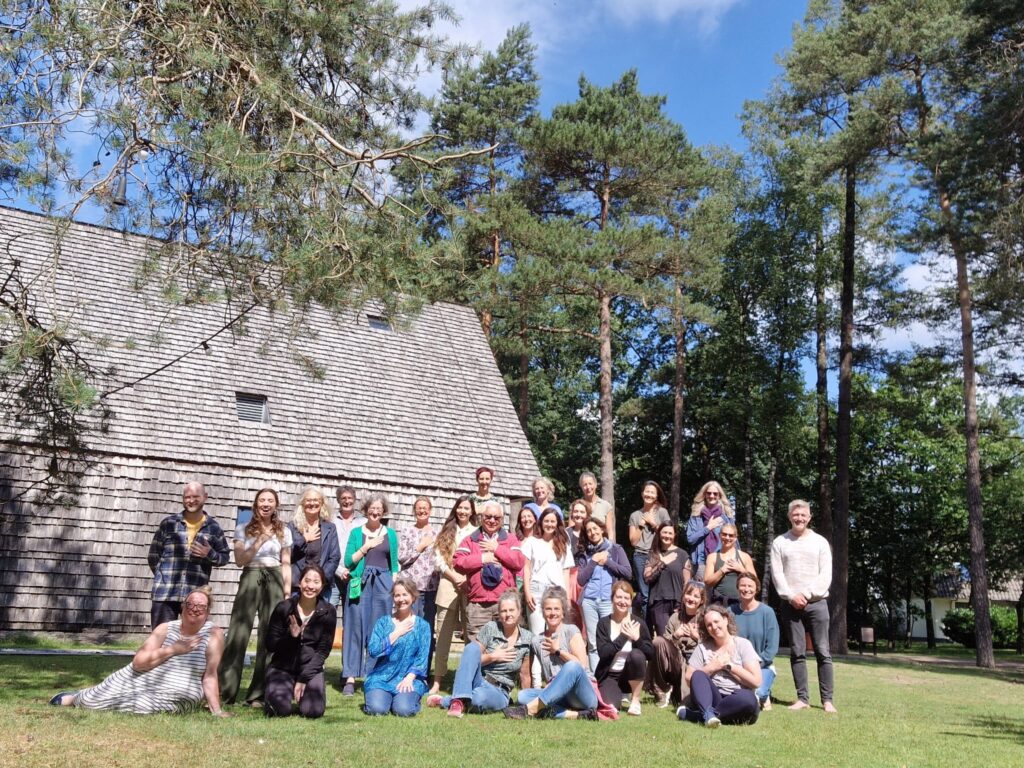Current project
Advancing mindfulness research across disciplines through interdisciplinary studies, an international consortium, and an open science database
This project will set the foundation for accelerating mindfulness research through interdisciplinary collaborations, open science and a common theoretical background.
Over the past four decades, research has shown that mindfulness brings substantial benefits for both mental and physical well-being. However, the mechanisms underlying these positive effects remain unclear and fragmented across different scientific domains. Psychologists study psychological processes impacted by mindfulness, neuroscientists explore brain changes, and molecular biologists focus on inflammation and genes. To truly comprehend the impact of mindfulness, it’s crucial to integrate these insights within a unified framework and gather comprehensive data.
In line with this mission, this project has three objectives:
1) to establish an international consortium of interdisciplinary mindfulness researchers (INSPIRER-MINDFULNESS consortium),
2) to create an open science database where researchers will share and pool data from their previous studies (INSPIRER-MINDFULNESS database),
3) to conduct an empirical study investigating long-term meditators that will test the mechanisms of long-term mindfulness meditation
Funded by the Varela Grant, Mind & Life Institute.
Completed project
MSCA-IF: A novel interdisciplinary framework to investigate
mechanisms of mindfulness
Mindfulness interventions seem to be able to counteract the effects of chronic stress, and to protect mental and physical health, but the underlying mechanisms are not yet fully understood.
This fellowship aims to test and further develop an interdisciplinary framework (INSPIRER) that integrates psychological, neural, genomic and immune mechanisms of mindfulness interventions.


Stress can be defined as the psychological and bodily response to any situation that is perceived as threat or a challenge, which can have a profound negative influence on health when it occurs over a long period of time. One of the consequences of chronic stress on the body is systemic inflammation.
Whereas inflammation is beneficial when it is brief and adequate (i.e., in response to physical danger), chronic stress leads to prolonged inflammation that is detrimental to health. More specifically, it increases the for inflammation-related mental and physical disorders such as anxiety, depression, asthma, cardiovascular disease, stroke, and neurodegenerative disorders. Hence, tackling the effect of stress on inflammatory dysregulation is a major research challenge.
A promising approach to stress reduction and prevention is mindfulness, a type of mind-body intervention that consists of techniques that cultivate non-judgemental awareness of the experience in the present moment. It is not fully
clear how mindfulness interventions establish their positive effects, and the available knowledge appears poorly integrated and scattered over disciplines.
The EU-funded INSPIRER project will develop and test a model that can reveal psychological, neural and immune mechanisms of mindfulness interventions. This model can further be applied to identify which interventions are the most effective in mitigating the effect of chronic stress and protecting human health.
Mindfulness interventions seem to be able to counteract the effects of chronic stress, and to protect mental and physical health, but the underlying mechanisms are not yet fully understood. This fellowship aims to test and further develop an interdisciplinary framework (INSPIRER) that integrates psychological, neural, genomic and immune mechanisms of mindfulness interventions.
To this aim, three studies will be conducted.
First, a review of the extant evidence that supports the INSPIRER will be conducted.
Second, long-term mindfulness meditators will be compared with non-meditators in terms of neural and immune outcome measures in a cross-sectional study.
Third, these outcomes will be used to compare an 8-week mindfulness intervention with an active control group through a randomised controlled trial.
The studies will apply methods from psychology (a computerised cognitive task and questionnaires), neuroscience (structural and functional MRI) and immunology (biomarkers of inflammation). In addition to testing the neural and immune mechanisms, the two empirical studies will include an experimental induction of stress to directly test if mindfulness increases resilience.
The INSPIRER has the potential to influence several research areas, as well to provide practical guidelines about which interventions are the most effective in mitigating the effects of chronic stress and concomitant inflammation.
We can only get the full picture of how mindfulness works by integrating these findings and testing hypotheses about their interactions. With this aim in mind, I am proposing a multi-level and interdisciplinary framework (INSPIRER) that integrates the proposed mechanisms of mindfulness interventions, and summarises how these mechanisms are thought to interact.
MAIN ASSOCIATES:
Dr. Jos Bosch
Associate professor in the Department of Psychology, section Clinical Psychology
Prof. Susan Bögels
Professor in Developmental Psychopathology at the University of Amsterdam
Dr. Esther de Bruin
Associate professor and health care (GZ) psychologist at the Faculty of Social and Behavioral Sciences,
Research Institute of Child Development and Education (RICDE) at the University of Amsterdam
Previous research
Individual differences in meditation interventions
Why do some people benefit more from mindfulness or other meditation interventions?
This meta-analytic study investigates the relationship between baseline participant characteristics and the outcomes of meditation.
More about this topic can be found in a book chapter in Oxford Handbook of Meditation)
Mind-body techniques and gene expression
What Is the Molecular Signature of Mind–Body Interventions? A Systematic Review of Gene Expression Changes Induced by Meditation and Related Practices
This study compared gene expression changes following different mind-body interventions and found that all of them can downregulate the activity of genes related to inflammation, which in turn reduces our risk for health problems.
Mindfulness and yoga in prison
Want to know more?
For more research and up-to-date list of publications, visit my Google Scholar profile:








